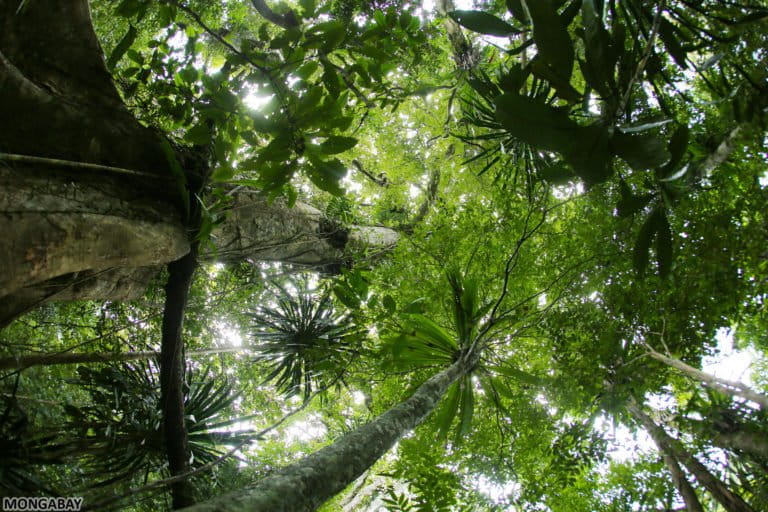- Madagascar’s election on Wednesday could have major implications for the future of the island’s environment and wildlife, says a prominent conservation scientist.
- In an op-ed published this week in Al Jazeera, William F. Laurance, a researcher at James Cook University in Australia, warns that if Madagascar chooses former president Andry Rajoelina, the country’s dwindling natural resources could face renewed assault.
- Under Rajoelina’s previous reign, which followed a 2009 coup, Madagascar’s forests, wildlife, and coastal waters were pillaged.
- Laurance contrasts Rajoelina with his opponent, Marc Ravalomanana, who was lauded by conservationists during his tenure for expanding protected areas, banning commercial logging, and taking steps to reduce deforestation.
Madagascar’s election on Wednesday could have major implications for the future of the island’s environment and wildlife — and by extension, its rising ecotourism sector — says a prominent conservation scientist.
In an op-ed published this week in Al Jazeera, William F. Laurance, a researcher at James Cook University in Australia, warns that if Madagascar elects former president Andry Rajoelina, the country’s dwindling natural resources could face renewed assault.
Under Rajoelina’s previous reign, which followed a 2009 coup, Madagascar’s forests, wildlife, and coastal waters were pillaged. Rajoelina himself was linked to trafficking in rosewood timber: “Upon his removal, a stash of rosewood logs was found in the presidential palace,” writes Laurance.

The environmental devastation under Rajoelina continued through his successor’s Hery Rajaonarimampianina’s rule, with a surge in deforestation and an auctioning off of community-managed fishing areas to foreign industrial fleets. With 95 percent of Madagascar’s lemurs classified as as either “endangered” or “critically endangered”, there is a real risk that a Rajoelina presidency could diminish some of the island’s biggest attractions for nature tourists.
“We can see Rajoelina’s predatory attitude to the environment as demonstrated by his track record,” writes Laurance. “One must only look to the appalling state of the Malagasy rainforests to witness his rapaciousness.”
“Appallingly, one of Rajoelina’s first acts was to legalize the felling of precious hardwoods by executive decree,” he continues. “The illicit trade flourished: after a year of Rajoelina’s presidency, illegal logging led to the Atsinanana, a region of eastern Madagascar containing the Betampona and Mangerivola nature reserves, being placed on the ‘List of World Heritage in Danger.'”

Laurance contrasts Rajoelina with his opponent, Marc Ravalomanana, who was lauded by conservationists during his tenure for expanding protected areas, banning commercial logging, and taking steps to reduce deforestation.
“Rajoelina’s opponent, Marc Ravalomanana, is less than perfect on the environment, but next to Rajoelina he looks like a battle-hardened eco-activist,” Laurance writes. “From an environmental perspective, then, the rest of the world can only cheer for one candidate in Madagascar.”
